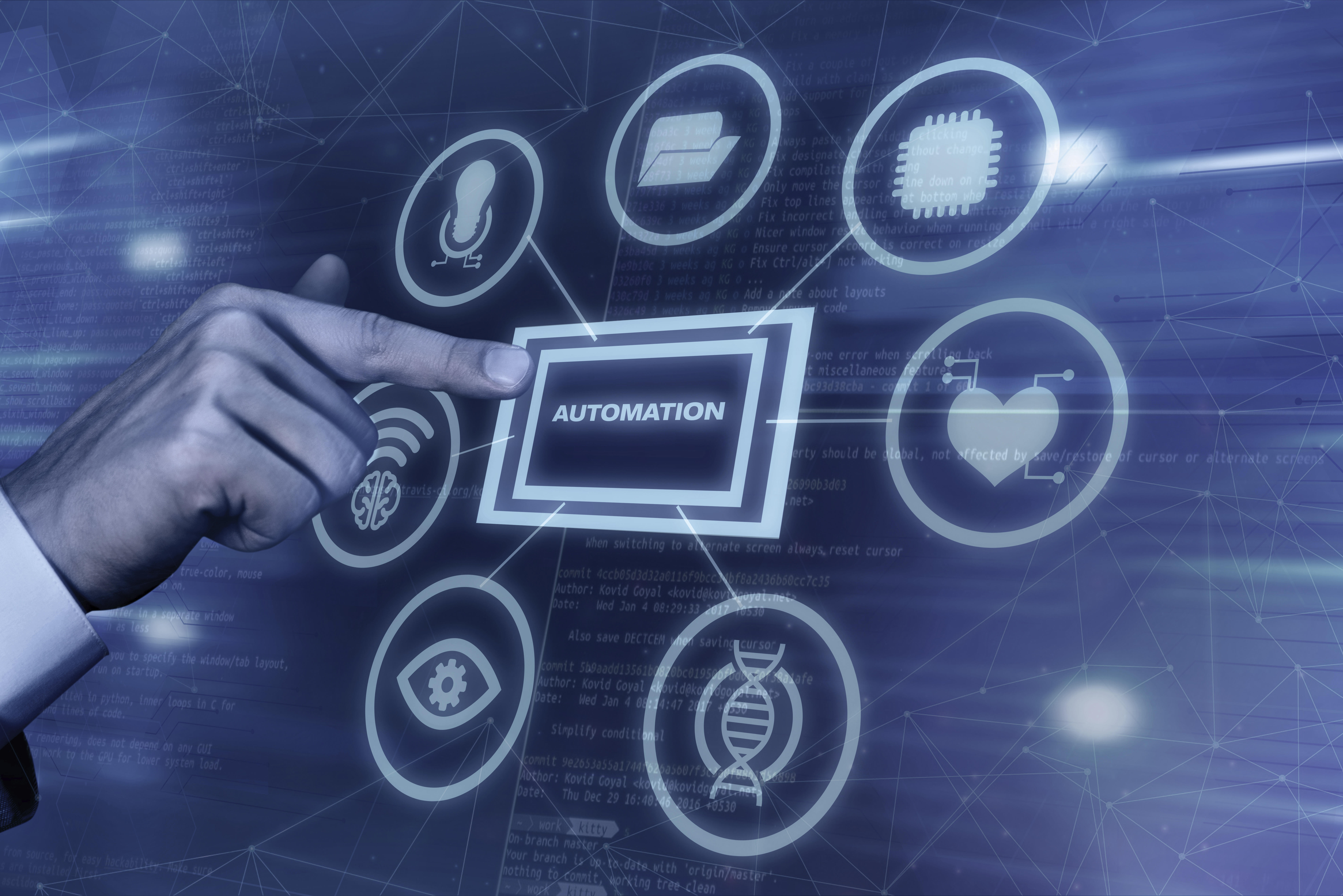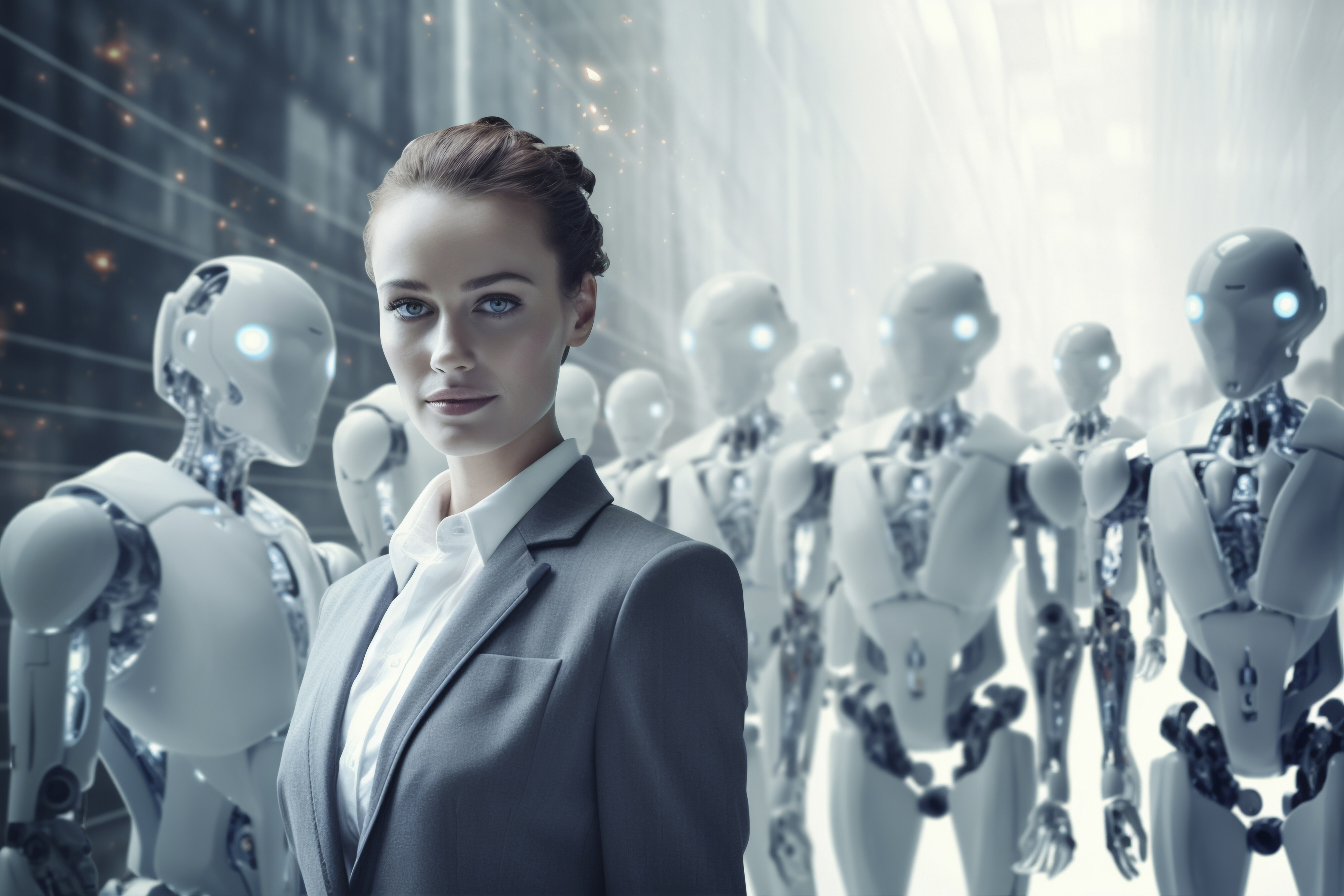How AI is Transforming Facebook Ads for Marketers in 2025
How has Facebook Ads AI Transformed Advertising on Social Media?
Since its launch in 2007, Facebook Ads have become a cornerstone of digital marketing. Initially, advertisers used basic demographic targeting based on user-provided information, allowing businesses to reach a broad audience. Over time, Facebook refined its ad platform, introducing more sophisticated targeting options such as interests, behaviours, and location. However, the true game-changer came with the integration of Artificial Intelligence (AI). The shift toward AI-driven marketing has revolutionized the way brands approach their advertising strategies on the platform.
AI has significantly enhanced the targeting capabilities of Facebook Ads by enabling advertisers to deliver highly personalized ads to users. Through machine learning algorithms, Facebook can analyse vast amounts of data, predicting what users are most likely to engage with based on their past behaviours, preferences, and interactions. This leads to more relevant ads being shown to the right audience, increasing the likelihood of conversion.
How AI Has Improved Targeting, Efficiency, and ROI in Facebook Ads
AI has optimized ad efficiency. Automation tools powered by AI can manage bidding strategies, adjust budgets, and determine the best times to display ads based on real-time performance data. This automation ensures that ads are always running at optimal levels, saving businesses both time and money.
Moreover, AI's ability to analyse data at scale has contributed to a higher return on (ROI) for advertisers. By continuously learning from user interactions and ad performance, Facebook’s AI can fine-tune campaigns to maximize engagement and conversions. This results in a more cost-effective advertising experience, as businesses can allocate their budgets more wisely based on AI recommendations.
How is Artificial Intelligence Revolutionizing AI Facebook Ads Campaigns?
Key AI Technologies Used in Facebook Ads
AI Facebook Ads have introduced transformative capabilities to digital marketing, allowing businesses to reach audiences more effectively than ever before. At the core of these advancements are technologies like machine learning (ML) and natural language processing (NLP). ML algorithms process large volumes of data from user activity, such as clicks, likes, and browsing behaviour, to predict which content will perform best with each audience segment. Meanwhile, NLP helps understand user intent and refine messaging to make ads more relevant. Together, these technologies make AI Facebook Ads more precise, engaging, and impactful in driving results.
Natural language processing, on the other hand, allows Facebook Ads to understand and interpret user-generated content, such as comments and posts. This capability helps advertisers craft messages that align with users’ sentiments, enhancing the relevance of ads. These AI technologies work in tandem to deliver a more personalized and engaging advertising experience.
The Role of AI in Automating Ad Creation, Targeting, and Optimization
AI is playing a crucial role in automating various aspects of Facebook Ads, making campaigns more efficient and effective. One of the most significant contributions is in the automation of ad creation. AI tools can automatically generate ad copy, choose images or videos, and even adjust ad formats based on performance data and user preferences. This removes much of the manual work from the ad creation process, allowing marketers to focus on strategy and creativity.
When it comes to targeting, AI algorithms analyse user data and behaviours in real-time to identify the most relevant audience segments for each campaign. These insights allow businesses to deliver hyper-targeted ads, ensuring that they reach the right people at the right time.
Furthermore, AI plays a key role in optimizing Facebook Ads by continuously analysing performance metrics and making real-time adjustments. It automatically optimizes bids, budgets, and placement to achieve the best possible results without the need for constant manual intervention. This leads to better campaign performance, increased efficiency, and a higher return on investment (ROI).
What are the Key Features of Facebook Ads AI Tools for Marketers?
Overview of Facebook's AI-Driven Tools and Features for Ads
Facebook offers several AI-driven tools and features designed to streamline and enhance advertising campaigns on its platform. One of the most popular tools is dynamic ads, which automatically deliver personalized advertisements to users based on their past interactions with a brand’s products or services. These ads are created and customized in real-time, ensuring that each user sees the most relevant product or service.
Another key feature is automated bidding, which leverages AI to optimize the amount of money spent on ad campaigns. Through machine learning algorithms, Facebook can adjust the bids based on real-time auction dynamics, ensuring that marketers get the best possible value for their ad spend. This helps maximize ad reach and conversions while minimizing wasted ad spend.
How These Tools Work and Benefit Marketers
These AI-driven tools work by utilizing vast amounts of user data and machine learning models to predict user behaviour and adjust campaigns accordingly. Dynamic ads, for example, use data from users' browsing behaviour, interests, and previous purchases to display ads for products they are most likely to engage with. This level of personalization boosts the chances of conversion and improves the overall effectiveness of the ads.
Automated bidding works similarly by analysing various factors such as the target audience, ad competition, and past campaign performance. AI evaluates these factors and adjusts bids to achieve the marketer’s goal, whether it’s maximizing clicks, conversions, or impressions. This feature eliminates the need for marketers to manually adjust bids, saving time and ensuring that the campaign is always optimized.
For marketers, Facebook Ads AI tools offer a powerful advantage by streamlining the entire advertising process. These tools enhance audience targeting, boost return on investment, and significantly reduce the time spent on manual tasks. With automation handling ad creation, delivery, and performance optimization, marketers are free to focus on strategy and creative development. As a result, campaigns become more efficient, data-driven, and impactful, helping businesses achieve better outcomes with less effort.
How is AI Facebook Ads Transforming Personalized Advertising and Customer Targeting?
How AI Uses Data to Create Highly Personalized Ad Experiences for Users
Artificial Intelligence (AI) plays a pivotal role in creating personalized ad experiences on Facebook by analysing vast amounts of data to understand individual user behaviours and preferences. Facebook collects data from a variety of sources, such as user interactions, browsing habits, purchase history, and engagement with past ads. AI algorithms process this data and predict what products or services a user is most likely to engage with, ensuring that the ads they see are relevant to their needs.
AI’s ability to create highly personalized experiences goes beyond simple demographic targeting. For example, AI can predict when a user is most likely to convert, whether through a specific product recommendation or an optimized ad format. By delivering personalized ads at the right time, AI boosts engagement, click-through rates, and overall campaign effectiveness, driving higher conversion rates and customer satisfaction.
The Impact of AI on Segmentation, Targeting, and Retargeting Strategies
AI has revolutionized segmentation, targeting, and retargeting strategies for Facebook Ads, enabling marketers to reach the right audience with greater precision. In traditional advertising, marketers would segment users based on broad categories like age, gender, or location. However, AI allows for much more refined segmentation by analysing user behaviours, interests, and past interactions. This enables the creation of highly specific audience segments, ensuring that ads are tailored to individuals' unique needs and desires.
In terms of targeting, AI continuously learns from data to identify patterns and trends in user behaviour. As a result, Facebook Ads can target users based on not only demographic information but also psychographic factors, such as lifestyle, values, and purchase intent. This level of precision enhances the effectiveness of advertising campaigns by delivering ads to users who are most likely to respond.
Moreover, AI has a significant impact on retargeting strategies. By tracking users who have previously interacted with an ad or visited a website, AI enables marketers to re-engage potential customers with tailored ads that remind them of products or services they showed interest in. This increases the likelihood of converting users who may have been hesitant initially.
How AI is Enhancing Facebook Ads Performance in 2025?
AI’s Role in Improving Ad Performance Metrics
In 2025, AI continues to play a crucial role in boosting the performance of Facebook Ads by significantly improving key performance metrics such as click-through rates (CTR) and conversion rates. Through machine learning algorithms, AI analyses vast amounts of data to identify patterns and predict the behaviours of users who are most likely to interact with ads. By understanding user intent and interests, Facebook Ads AI ensures that the right ad reaches the right audience at the right time, increasing the likelihood of engagement.
For example, AI can automatically adjust ad creatives, targeting, and placement to optimize ad performance. As a result, ads become more relevant and appealing to individual users, leading to higher CTRs. Similarly, AI refines ad delivery strategies to ensure that ads reach users who are most likely to convert, thus improving overall conversion rates. These AI-driven optimizations help marketers maximize the return on their ad spend while reducing waste and inefficiencies.
Predictive Analytics and How They Shape Decision-Making for Marketers
One of the most powerful aspects of AI in Facebook Ads is its use of predictive analytics, which allows marketers to anticipate future trends and make data-driven decisions. By analysing historical data, user behaviours, and engagement patterns, AI can forecast how an ad campaign will perform and provide recommendations on how to improve it. Predictive analytics help marketers identify the most promising audience segments, refine their targeting strategies, and adjust their messaging to align with users' needs and preferences.
Moreover, AI’s predictive capabilities enable marketers to optimize their campaigns in real-time. Instead of relying on past performance alone, predictive models forecast potential outcomes and allow for proactive adjustments. For example, if an AI model predicts that a certain audience will be more likely to convert at a specific time of day, marketers can adjust their ad schedule to capture these opportunities. This ability to predict and act on trends not only improves the effectiveness of Facebook Ads but also helps marketers make smarter, more informed decisions, ultimately driving better campaign results.
What are the Ethical Considerations and Privacy Concerns with AI Facebook Ads?
Addressing Privacy Issues in AI-Powered Advertising
As AI becomes increasingly integrated into Facebook Ads, privacy concerns have come to the forefront of public and regulatory scrutiny. AI-driven advertising relies heavily on user data—everything from browsing behaviour and purchase history to likes, comments, and location. While this data enables highly personalized ad experiences, it also raises critical questions about user consent, data security, and transparency.
One major concern is how user data is collected and processed. Users are often unaware of the extent to which their personal information is being used to shape the ads they see. This lack of transparency can lead to mistrust and a sense of surveillance. To address these concerns, Facebook and advertisers must ensure compliance with global data protection regulations such as the General Data Protection Regulation (GDPR) and the California Consumer Privacy Act (CCPA). These laws require that users are informed about data usage and have the option to opt out of data tracking and personalized advertising.
Ethical Considerations for Marketers Using AI
Beyond legal compliance, marketers have an ethical responsibility to use AI in a way that respects user rights and promotes fairness. One key ethical issue is algorithmic bias. If the AI systems behind Facebook Ads are trained on biased data, they can unintentionally reinforce stereotypes or exclude certain groups from seeing specific types of content, such as job ads or educational opportunities. Marketers should regularly audit their AI tools to ensure fairness and inclusivity.
Another ethical challenge is over-personalization. While tailoring ads can improve user experience, it can also become intrusive if users feel manipulated or overly targeted. Marketers must strike a balance between personalization and respecting personal boundaries.
What are the Future Trends for AI in Facebook Ads Post-2025?
Predictions for the Future of AI in Facebook Ads and Digital Marketing
As we move beyond 2025, AI is expected to play an even more dominant role in shaping the future of Facebook Ads and digital marketing as a whole. The shift will be toward deeper personalization, hyper-automation, and more intelligent ad strategies. One major prediction is the rise of fully autonomous ad campaigns. Marketers will be able to input basic campaign goals, and AI will handle everything from creative generation to budget allocation and performance optimization.
AI will also become more predictive and proactive. Instead of reacting to user behaviour, Facebook Ads will use predictive models to anticipate user needs and deliver ads at precisely the right moment. These systems will analyse not only online activity but also contextual signals such as time of day, mood (inferred from content interactions), and even biometric data from wearable tech—offering unprecedented levels of personalization.
Emerging AI Technologies That Will Shape the Next Generation of Facebook Ads
Several emerging AI technologies are set to redefine Facebook Ads in the coming years. One key advancement is generative AI, which will allow advertisers to instantly produce personalized ad creatives, including text, images, and video content tailored to individual users. This technology will make campaigns more dynamic, cost-effective, and scalable.
Another major development is the use of advanced natural language understanding (NLU) to improve how AI interprets user intent and sentiment. This will help brands craft messages that resonate emotionally, increasing engagement and conversions. Additionally, AI-powered voice and conversational interfaces may soon be integrated into Facebook Ads, allowing users to interact with ads using natural dialogue.
What are Some Case Studies and Success Stories of AI Facebook Ads?
Real-World Examples of Businesses Using AI for Facebook Ads
Many businesses across industries have leveraged AI to achieve outstanding results with their Facebook Ads campaigns. One notable example is an e-commerce fashion retailer that implemented AI-powered dynamic ads to showcase products tailored to individual browsing behaviour. By using AI to personalize product recommendations, the company saw a 35% increase in click-through rates and a 25% boost in conversions within just one month.
Another success story features a travel booking platform that leveraged AI Facebook Ads to enhance campaign performance. By using AI-powered tools like automated bidding and intelligent audience segmentation, the company optimized ad delivery in real time. This strategic approach led to a 40% drop in cost-per-click while sustaining strong engagement and conversion rates. The success was largely due to AI’s capability to pinpoint high-intent users and serve personalized ads precisely when users were most likely to take action.
How These Companies Leveraged AI Tools
The success of these businesses came from using Facebook’s AI tools strategically. Dynamic ads allowed the fashion retailer to automatically display products that matched each user’s interests without manual updates. The travel company used Facebook’s automated bidding system to optimize ad spend, letting AI decide the best bids and placements based on performance trends.
Both companies also relied heavily on AI-powered insights. Real-time data analysis helped them quickly identify what was working and what needed adjustment, ensuring campaigns remained effective and agile.
Lessons Learned and Best Practices for Marketers
From these case studies, a few key lessons emerge for marketers looking to implement AI in their Facebook Ads strategy:
- Start with clear goals: Let AI optimize toward a specific objective, such as conversions or reach.
- Leverage automation: Use dynamic creatives and automated bidding to maximize efficiency.
- Monitor performance and adapt: Use AI insights to continuously improve campaigns.
Conclusion
AI is transforming the way marketers approach Facebook Ads by driving smarter targeting, automating campaign management, and significantly improving key performance metrics. From predictive analytics to real-time optimization, AI empowers advertisers to deliver more relevant and engaging content to the right audiences. Businesses that have adopted facebook ads ai solutions are already seeing stronger returns on investment and more efficient use of their ad budgets. As the landscape continues to evolve, now is the ideal time for marketers to explore ai facebook ads tools and begin integrating them into their strategies to stay competitive and future-ready.








